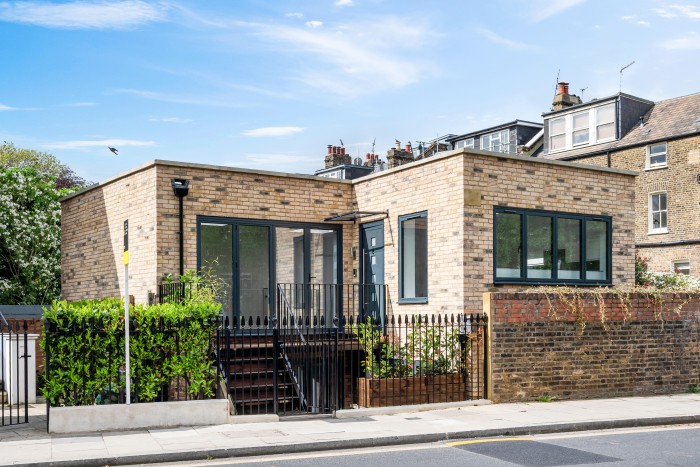Stamp Duty Holiday likely to be extended
Posted in February 2021
Speculation is rife that the Stamp Duty Holiday will be extended until the end of June 2021 in next week's Budget
The residential property industry have welcomed the news that that the Stamp Duty Holiday is likely to be extended by Rishi Sunak in his Budget, to be announced on Wednesday 3rd March.
The lead story which was featured in The Times yesterday morning, speculated that the Chancellor is preparing to introduce a three-month extension to the Stamp Duty Holiday, to allow extra time for existing property deals to be completed. This will avoid the current and much-feared cliff-edge deadline on 31st March, which was putting thousands of buyer transactions at risk of falling through.
The popular and much publicised online petition which has been calling for a Stamp Duty Holiday extension for an additional 6 months after 31st March 2021 and was being backed by buyers, sellers, agents, conveyancing solicitors, economists, property commentators, mortage lenders and surveyors, has now exceeded 150,000 signatures.
The Times has been told that Rishi Sunak will be using his Budget next week to announce the Stamp Duty Holiday deadline move to 30th June 2021, which will coincide with the easing of lockdown. The Stamp Duty Holiday extension is estimated to cost the Treasury around £1bn.
Research from property tax specialists Cornerstone Tax shows that 37% of potential house buyers would not be buying a house in the near future, if the Stamp Duty Holiday were to end on 31st March 2021.
David Hannah, the Founder and Principal Consultant of Cornerstone Tax, commented on the speculation that the Stamp Duty Holiday was likely to be extended on Wednesday by saying: “This news is big a win for the property industry and home buyers, especially given that without it thousands of purchases could fall through and many will pause their plans to buy houses as our research shows.
“The approaching end of the stamp duty holiday is already having a profound effect on the property market, sale collapses are approaching record highs and solicitors and conveyancers are already reporting that they expect to see a considerable drop in demand very soon.”
David Hannah believes that calls to make the Stamp Duty Holiday permanent or to scrap the tax altogether, are unrealistic given the levels of public debt and the £12bn tax revenue take it generates each year.
However, he also says that raising to the nil-rate band, to somewhere around £300,000, will benefit the majority of buyers without affecting a large amount in tax revenues, which is obviously key to the recovery of public finances.
“Home ownership is key to the UK economy, upward mobility and the aspirations of many that are currently struggling to get on the property ladder,” he added.
Iain McKenzie, CEO of The Guild of Property Professionals, also commented on the speculation that the Stamp Duty Holiday is likely to be extended by saying: “Reports that the Chancellor could extend the stamp duty holiday until June would be great news for buyers, sellers and the property market as a whole, if confirmed.
“Hundreds of thousands of transactions have been caught up in the logjam caused by the rapidly approaching deadline and many people face being penalised through no fault of their own.
“While it would be positive to see an extension, an abrupt end to the stamp duty holiday, whenever it happens, could cause harm to the economy and disrupt the property market.
“A gradual phasing out of the scheme would ensure that consumers still waiting to complete aren’t hit in the wallet and would make more sense, as a cliff-edge at any time is an unnecessary threat.
“Considering property transactions are taking longer to complete, if there is no gradual phasing introduced, buyers entering the market now will need to be prepared to pay stamp duty.”
Chief Policy Advisor at Propertymark, Mark Hayward commented: “The speculation that the stamp duty holiday will be extended is good news for the property sector. Since the holiday was first announced, we have continually worked to galvanise the industry and lobby Government to rethink these timings due to our concerns that a cliff edge in March could cause thousands of sales to fall at the final hurdle and have a knock on and drastic effect on the housing market which has recovered well from the Covid-19 slump.
“However, extending the holiday until June will create another cliff edge. We know from our own research that the majority of estate agents expect to see an increase in the number of failed sales if the stamp duty holiday ends at a cliff edge so we need Government to consider a tapered end to the holiday so that buyers aren’t forced to pull out at the last minute and the property market can continue to thrive.”
What isn't clear as yet however, is whether the extension is three-months for all current and new buyers of properties up to £500,000 - thereby creating a new cliff-edge, or a 'tapered' extension only for current buyers.
The extension is precisely the same length advocated this week by the Building Societies Association (BSA).
The BSA says that with the 31st March cliff-edge deadline fast approaching, many buyers and sellers who have already agreed sales and have mortgages approved, would be unlikely to complete the transaction within the deadline.
The BSA believes that a tapered end would allow any house purchase where the mortgage approval has been granted by the end of March, an additional three months to complete while still benefiting from the rate reduction. In addition to supporting homebuyers who are likely to have budgeted based on the Stamp Duty saving, a taper of that length would also ensure that lenders and conveyancers could manage operational pressures in a Covid-secure way, the association believes.
Latest posts
Free property valuation
With three local offices we have unrivalled market knowledge. A senior member of the David Andrew team will come to your property to provide an accurate sales valuation or rental valuation and offer comparable properties we have sold in order to justify our valuation and to show how we can achieve you the best possible price.
Register with us
Register today to receive instant alerts when we add properties that match your requirements.


